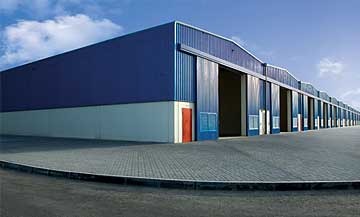The current political and economic scenario, the modernization of production, transportation and storage of goods, security issues, cost reduction and facilities reorganization, as well as the fact that available properties are insufficient and inadequate to comply with market demand and technical requirements, have led industries and companies from various sectors of the economy to establish their headquarters, subsidiaries and warehouses in condominiums built specifically to meet their needs.
Also, a business condominium enables the existence of essential and useful services for many businesses and industries in the same complex. For example, it is possible to keep in a common area restaurants, lockers and parking lots, among others.
However, it is important to stress that some preventive measures are essential when negotiating the lease of a warehouse located inside of a business condominium, such as reviewing information and documents related to the enterprise. Such measures are aimed at mitigating problems resulting from barriers of various types.
In order that the warehouses and common areas are used in a clear and transparent manner, it is essential that the enterprise be formed as a business condominium and, consequently, divided into independent units with individual registrations at the Real Estate Registry Office. Thus, each unit (warehouse) will have an individual registration and building launch at the Real Estate Registry Office, and an individual charge of the Municipal Real Estate Tax (IPTU), thereby allowing that each of them be sold or offered as guarantee separately from the others. Besides that, the condominium enables City Tax Authorities to collect the Municipal Real Estate Tax – IPTU per unit, as well as defines measures and public charges such as billing of energy, water, gas and others, individually.
Nowadays it is commonplace to find business condominiums not legally incorporated, i.e., several warehouses built on a plot of land without the legalization of the condominium and the individualization of its units duly registered with the City Hall. This may lead to confusion among companies (such as characterization of more than one company established at the same address, tax consequences and others; risk of denial of issuance and/or renewal of operating licenses, permits, AVCB – fire department inspection certificate, and other registrations by various public agencies).
Furthermore, the division into individual units is often a prerequisite for the rental by companies which want to ensure they will have the right of preference or the right to be maintained in the Real Estate Property contract in the property is sold to third parties, by filing the rental agreement in the specific record of the warehouse in the Real Estate Registry Office. Finally, the legalization of the division into autonomous units allows the hiring of individual fire insurance for each warehouse.
The business condominiums comprising warehouses designed to shelter companies and industries are enterprises that require a regular incorporation, aiming to avoid the risk of non-viability of the activities of companies and industries established there due to irregularities in the property and its records, not to mention establish clear rules for sharing common expenditures (condominium fees) and clear and legally instituted rules for the peaceful coexistence of the condominium tenants.
Patrícia Perinazzo C. Medeiros is a lawyer in the intellectual property and data protection area at PNST Advogados.



